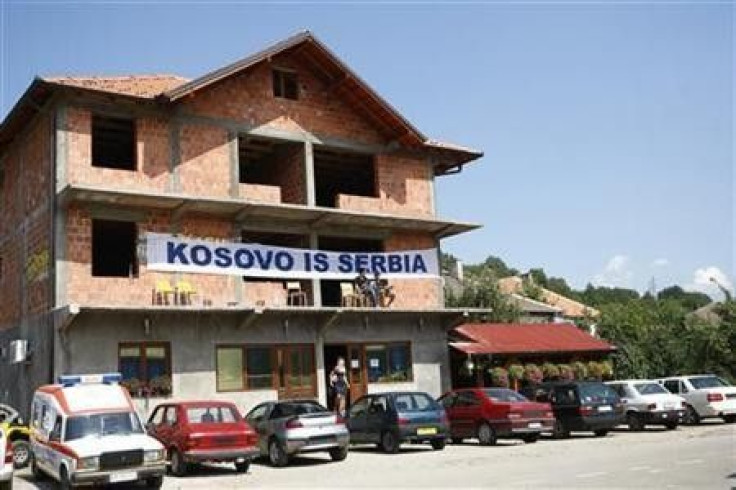Serbia issues warning over Kosovo border plan

Serbia warned the West on Tuesday that violence could flare if a plan to install Kosovo police and customs officers on the border with its breakaway former province goes ahead this week.
At issue are two border crossings in a Serb-populated northern slice of Kosovo, a country of 2 million ethnic Albanians that declared independence from Serbia with Western backing in 2008.
Kosovo wants its own police and customs officers on the border, but minority Serbs in the north have resisted such a move.
Violence flared in July when special units of the Kosovo police tried to seize the border posts in a row with Belgrade over exports. Armed Serbs torched one frontier post and forced police to withdraw from both, leaving troops of the 6,000-strong NATO peace force scrambling to take control.
A deal under which NATO staffs the border posts expires on Friday, and Kosovo says a new attempt will be made, coordinated with EU police and NATO, to install at least a skeleton police and customs presence at the border.
Serbian President Boris Tadic told a news conference on Tuesday that he had been informed of the plan through diplomatic channels, and that Belgrade would use diplomacy to oppose it.
This is the height of irresponsibility and dangerous behaviour, Tadic said. Serbia will not accept such a solution irrespective of the pressure to do so.
Anyone who undertakes actions that could put the lives of people in jeopardy must be aware of the consequences, he said, and called for dialogue.
Serbian Foreign Minister Vuk Jeremic said he had lodged a protest with United Nations Secretary General Ban Ki-moon.
SUPREME AUTHORITY
Kosovo Prime Minister Hashim Thaci has staked his political credibility on reining in the largely lawless north, which still counts Belgrade as its capital and rejects any encroachment of Kosovo's ethnic Albanian-dominated institutions.
Belgrade is under pressure from the EU to regulate its relationship with Pristina if it is to make progress with its application to join the bloc, but the government has one eye on a parliamentary election due in 2012.
The plan is to reopen border posts 1 and 31 under the supreme authority of the institutions of the Republic of Kosovo, Thaci was quoted as saying in an interview with Radio Free Europe's Albanian-language service on Tuesday.
The Belgrade authorities are completely powerless to change anything during the implementation of the decision, he said.
One Kosovo Albanian police officer was killed when Serbs violently opposed the border takeover in July. The border posts were first attacked and burnt down in 2008 after Kosovo declared independence and was recognised by major Western powers. Serbs in the north have threatened roadblocks.
We are on guard, and if Thaci sends his special police ... we will exercise our democratic right to protest and block all the roads, said Radenko Nedeljkovic, a senior Serb leader in the northern Mitrovica region.
An EU official close to the process, who declined to be named, told Reuters: We need to re-establish control and this has been the EU view for a long time -- that we need a solution and some form of normality there.
Serbia lost control over Kosovo in 1999, when NATO bombed to halt Serb atrocities and ethnic cleansing in a counter-insurgency war under then Yugoslav strongman Slobodan Milosevic.
Since declaring independence in 2008, Kosovo -- 90-percent ethnic Albanian -- has been recognised by more than 80 countries. But the status of the north and its some 60,000 Serbs is still to be regulated, and is weighing on both Serbia's and Kosovo's EU ambitions.
© Copyright Thomson Reuters 2024. All rights reserved.











